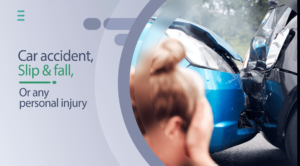You are probably wondering who is at fault for an accident. You may have heard the terms “negligence” and “fault” used in relation to car accidents, but what does that mean? In short, negligence is the failure to act with reasonable care—or more specifically, not doing something you should have done.
To be considered negligent, your actions must have caused or contributed to another person’s injuries or damages (even if they weren’t a direct cause). The legal definition of negligence varies from state-to-state so it’s important for drivers everywhere to know what kind of conduct qualifies as such, before getting behind the wheel again after an accident has occurred.
How Do I Legally Prove Who Was at Fault for An Accident?
If you’ve been involved in a car accident, the first thing you should do is contact a lawyer. You need to find one that specializes in personal injury law and can help explain your options and guide you through the process of proving fault in court.
You also need to prove that the other person was negligent—that they didn’t follow proper protocols when driving or riding their bike or walking down the street. These are called “strict liability” laws, which means that if another driver causes an accident while violating these rules (like speeding), then they’ll be held liable for any injuries sustained by anyone involved in their crash regardless of whether or not it was their fault! This means no matter who’s at fault—you’ll still have legal recourse against them if things go wrong during an accident investigation process.
Can I Get Compensation for My Injuries If the Accident Might Have Been Partly My Fault?
If you were partly at fault and suffered injuries, then it’s possible that you may be able to claim compensation for your injuries. This will depend on the circumstances of the accident, including how much responsibility each party involved was responsible for.
If a driver is found to have been partially at fault in an accident, he or she may be able to claim damages from other parties involved in the incident.
Can I Get Compensation for My Injuries If My Physical Limitations Made the Accident More Likely or Made My Injuries Worse?
The law is not sympathetic to your situation. If you have a physical limitation, it will be difficult for you to prove that the accident was not your fault. You may think that because of this limitation and your inability to control the car, it was more likely or worse than usual that an accident would occur. However, the courts do not look at things this way; they only consider whether or not there was negligence on the part of either driver in causing the crash.
If someone hits into a car with an open door while making a left turn onto an off-ramp from which all vehicles must exit onto another road (and vice versa), then both drivers are responsible for paying damages caused by their actions during that time period.




